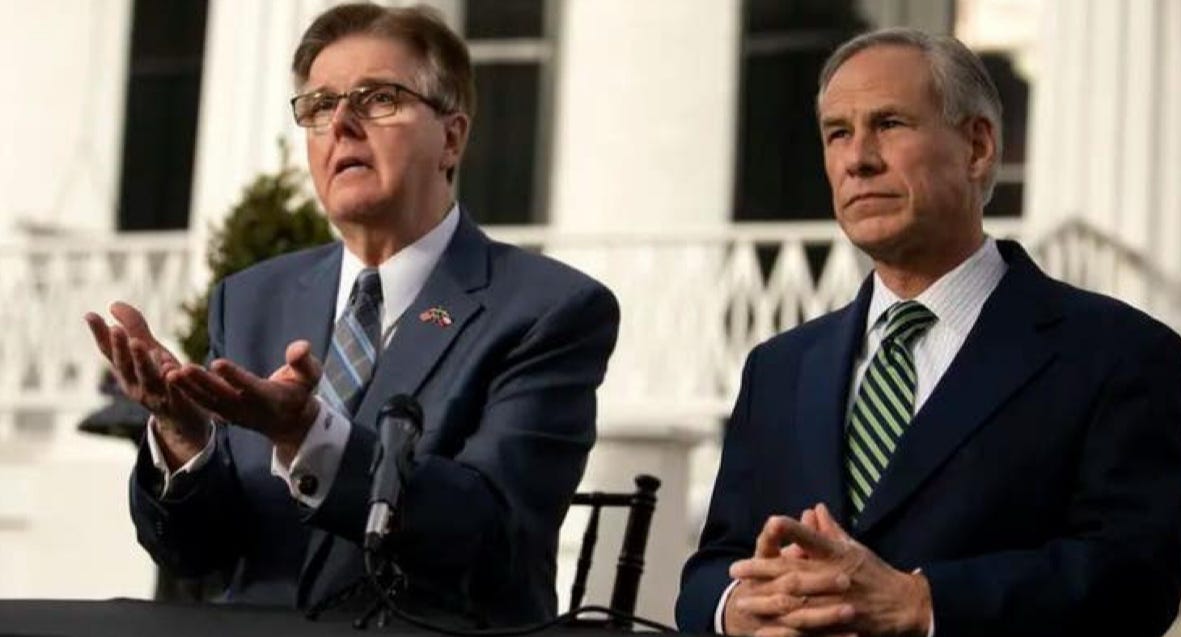Texas Governor Abbott Vetoes Hemp Ban, Clashes with Lt. Gov. Patrick Over Senate Bill 3
On the night of June 22, 2025, Texas Governor Greg Abbott vetoed Senate Bill 3 (SB 3), a controversial measure that would have banned consumable hemp products containing THC, including delta-8 and delta-9. The decision, made just before the midnight veto deadline, has preserved Texas’ $8 billion hemp industry and its estimated 50,000 jobs for the time being. However, it has also ignited a public feud with Lieutenant Governor Dan Patrick, who championed the bill as a top legislative priority. Abbott’s veto, coupled with his call for a special legislative session starting July 21 to regulate rather than ban THC products, underscores a rare rift between two of Texas’ most powerful Republican leaders.
SB 3 aimed to prohibit the sale of hemp-derived THC products, such as gummies, beverages, and vapes, which have proliferated in Texas since the 2019 legalization of hemp under state and federal law. Critics, led by Patrick, argued that the industry exploited a loophole allowing high-potency THC products to be sold without sufficient oversight, posing risks to public health, particularly for children. Patrick called these products a “poison in our public” and staged high-profile press conferences, including one on May 28, 2025, where he displayed THC-infused snacks to highlight their accessibility.
The bill passed overwhelmingly in the Texas Legislature, with a 26-5 vote in the Senate and an 87-54 vote in the House, largely along party lines. Supporters, including law enforcement and some medical and education communities, argued that a total ban was necessary to protect public safety. However, opposition came from a broad coalition, including hemp industry leaders, veterans, farmers, and even conservative activists, who urged Abbott to veto the bill. They warned that SB 3 would devastate a thriving industry, eliminate jobs, and push consumers toward black markets or more dangerous alternatives like opioids.
Abbott’s Veto and Rationale
In his veto statement, Abbott argued that SB 3 was “well-intentioned” but flawed, citing potential constitutional challenges and conflicts with the 2018 federal Farm Bill, which legalized hemp products. He stated that the bill’s blanket ban “puts federal and state law on a collision course” and could be “permanently invalidated by the courts” or delayed for years in legal battles. Instead of a ban, Abbott called for a special legislative session to craft a regulatory framework that “protects public safety, aligns with federal law, has a fully funded enforcement structure, and can take effect without delay.”
The veto was met with relief from the hemp industry and its supporters. The Texas Hemp Business Council, which delivered over 150,000 petition signatures and thousands of letters to Abbott’s office, praised the decision as reinforcing “Texas’ reputation as a leader in business innovation and practical policymaking.” Veterans’ groups, like the Texas Department of the Veterans of Foreign Wars, also celebrated, arguing that hemp-derived products offer a critical alternative to addictive pharmaceuticals for managing chronic pain.
Dan Patrick’s Response
Lieutenant Governor Dan Patrick, who had staked significant political capital on SB 3, did not hide his frustration. In a scathing post on X shortly after the veto was announced, Patrick accused Abbott of remaining “totally silent” on the bill throughout the legislative session. He described the “late-night veto” as abandoning law enforcement, medical and education communities, and families affected by THC-related harms. “I feel especially bad for those who testified and poured their hearts out on their tragic losses,” Patrick wrote, emphasizing the emotional weight of the issue for supporters.
Patrick announced plans for a press conference on June 23, 2025, to further address the veto, signaling his intent to keep the issue alive. His response highlighted a rare public clash with Abbott, with whom he has generally maintained a strong working relationship. Patrick’s allies, including 105 of 108 Republicans in the Legislature, had backed SB 3, making the veto a significant rebuke of his agenda.
Abbott’s decision places him at odds with Patrick but aligns with a growing sentiment among Texans, including 55% of Republicans polled by the Texas Politics Project in April 2025, who favor less strict cannabis laws. The veto also responds to intense pressure from the hemp industry, which warned of a $27 million revenue loss to the state’s General Fund and millions more at local levels. Conservative critics of SB 3, such as radio host Dana Loesch and State Republican Executive Committee member Rolando Garcia, had accused Patrick of promoting a “nanny state” and inadvertently aiding Mexican drug cartels by driving THC sales underground.
The special session called by Abbott for July 21 will shift the focus from prohibition to regulation, potentially addressing issues like child-resistant packaging, age restrictions, and stricter enforcement of existing laws. However, the public rift with Patrick could complicate negotiations, as the lieutenant governor wields significant influence in the Senate.
“We are pleased Governor Abbott chose to side with the citizens of Texas who made their voices heard in the fight over hemp. We are also very open to reasonable regulations and looking forward to finding a solution that is not a complete ban that wipes out more than 50k jobs and 8k small businesses.”
-Lukas Gilkey of Hometown Hero
Governor Abbott’s veto of SB 3 marks a pivotal moment in Texas’ hemp policy, preserving an industry that employs tens of thousands while setting the stage for a contentious special session. Lieutenant Governor Dan Patrick’s sharp rebuke underscores the personal and political stakes of the decision, revealing a rare fracture in Texas’ Republican leadership. As the state prepares to debate regulation over prohibition, the outcome will likely shape the future of Texas’ hemp industry and the broader political dynamics between two of its most influential figures.


Abbott is correct. Prohibition is proven to be failed policy.
New policy should provide restrictions on use and serious consequences for illegal actions. Control, not prohibition.